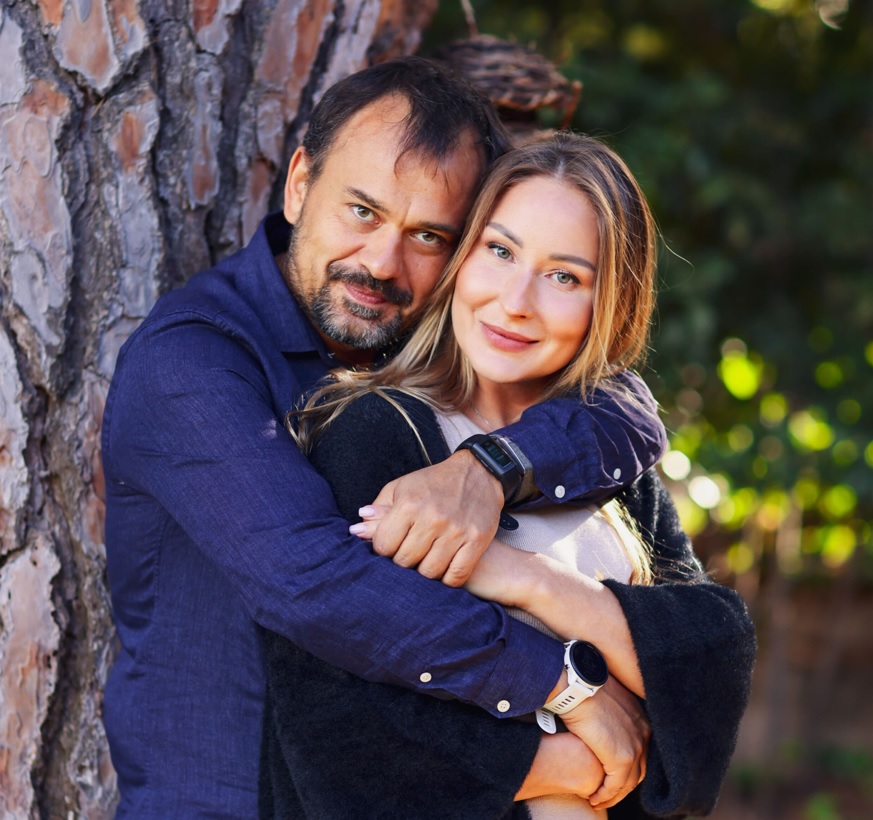When two people meet later in life, they usually come with more than just personal histories and life experience—they often bring children from previous marriages. And as they dive into a new relationship, sooner or later, they’ll find themselves face to face with someone else’s child, someone they’ll need to build a contact with. It doesn’t really matter whether the kids are young or teens; this process is rarely simple for anyone involved. There are always layers of complicated feelings, emotions, and fears.
Building a bond with a stepchild is like embarking on a long-term project with an uncertain return on investment. It requires time, energy, patience, and acceptance. You have to approach these relationships with an open heart and a genuine interest in creating something new. You keep trying and trying, until one day, you find yourself sitting down for tea with his son, deep in conversation. Or perhaps, out of the blue, you’ll hear his little daughter ask, “Can I braid your hair?” Or you might smile when his teenage daughter walks in and cheerfully greets you both with, “Hey, parents!”
That’s all theory, of course. In practice, things can be quite different. To better understand the reality of building relationships with stepchildren, we spoke with Sergey and Anastasia Stopnevich.
In this article, they openly shared their personal journey of blending their families, how they united children from different marriages, the principles they follow in parenting, and how they navigate the challenges.
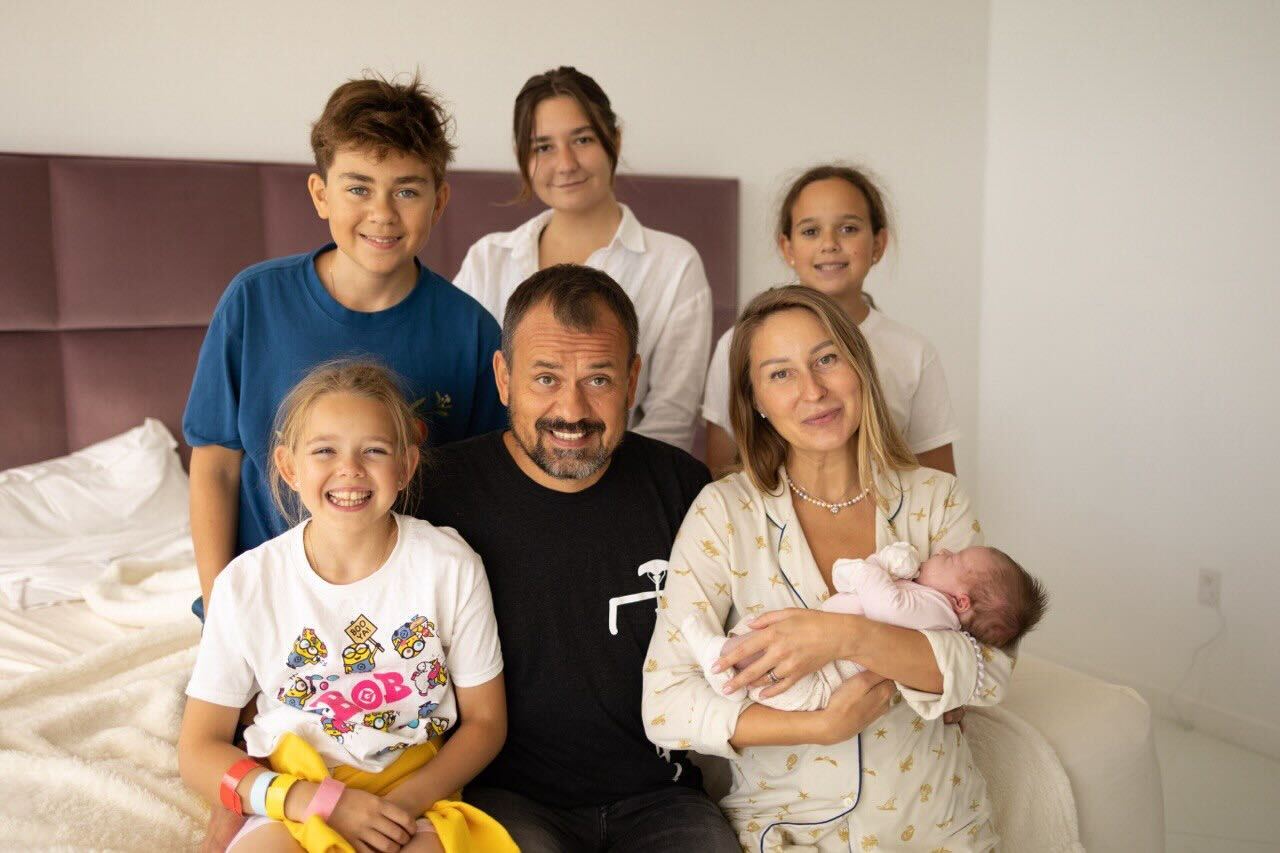
"What kind of woman would want to meet a guy with four kids?"
Sergey: After my divorce, I kept thinking, "What woman in her right mind would want to meet a guy with four kids?" Unfortunately, there’s still a stereotype that if a man is single with four kids, he must be a bad guy who left his wife, doesn’t pay child support, and isn’t involved in his kids’ lives. It’s as if society is silently asking, "How could you possibly have messed up so badly?" So, when I met Nastya, I was pretty anxious, wondering, “Will she understand the situation?”
Nastya: When I dreamed of meeting a man, I always knew I wouldn’t be interested in someone without relationship experience or kids. To me, a man without a past is strange. But a divorced man with four kids? That was pretty strange too. I had always believed that large families didn’t fall apart—that if a couple has four kids, they must be living in love, able to work through any problem together. Turns out, things don’t always work out that way.
"Sergey slipped a video game into my hand and quietly said, ‘Give this to Sasha. He’ll appreciate it.’"
Sergey: Was I nervous about meeting Ksyusha? Not at all. I’ve always believed that the most important part of meeting a child, no matter the age, is whether they accept you. Everything else will take its place over time. I was confident that things with Ksyusha would go smoothly, and my intuition turned out to be right.
Our meeting with Ksyusha happened quite spontaneously. It was May 2021, and Nastya and I were getting ready to fly to Cyprus. I was on my way to her house to pick her up for the airport when I thought it was a good chance to meet Ksyusha. I stopped at a flower shop on the way and picked up a pretty bouquet. When I arrived, a shy but sweet girl came out to greet me, I gave her the flowers, and we introduced ourselves.
Nastya: Meeting Sergey’s kids was a very emotional experience for me. First, I met his eldest son, Artem, and his wife, Anya. Artem is an adult now, with his own family, so our conversations were comfortable right away. Sergey later told me that when he and his wife divorced, Artem was supportive, saying, “Dad, don’t worry! It’ll be great if you meet someone at your marathons, and you can train and race together.” In the end, that’s almost what happened—except we met at a sailing regatta instead of a marathon.
When the time came to meet Sasha, Sergey helped me a lot. He and Sasha drove up, and Sergey got out first, slipped a video game into my hand, and quietly said, “Give this to Sasha; he’ll appreciate it.” I was so nervous that I hadn’t even thought about bringing a gift. Masha and Tanya were the last to meet. The girls later told me how Sasha had prepped them, saying, “She’s pretty, and it looks like she’s had plastic surgery.” Out of the two, Tanya accepted me more easily, while Masha spent the first few months being jealous of her dad’s attention. When Sergey and I would hug, Masha would push me away, saying, “Don’t touch him! He’s my dad!”
Sergey: As for me, I wasn’t worried about the jealousy at all. First of all, I knew that we just needed to give everyone time. Secondly, by the time I introduced Nastya, I already had a strong emotional bond with my kids, and nothing could shake that. I wasn’t concerned about whether they would approve of my choice. I simply told them, “This is Nastya. She’s the woman I love, and we’re serious.” I didn’t ask for their advice or permission. Of course, I hoped everything would go well, but I made it clear to my kids from the start that Nastya and I were serious.
Nastya: I never worried about conflicts between Sergey and Ksyusha. For the first time in my life, I was with a truly good person. When I thought about Ksyusha, I asked myself, “How could there be any conflict if Sergey is such a good man?” About a year after they met, Ksyusha told me that she hoped her future husband would be like Sergey. I’m so happy that my daughter has such a positive role model of what a man should be. Sergey is the only person Ksyusha lets tease her. He’s gotten her into sports and treats her exactly like his own kids.

Sergey: When I met Nastya, I knew that if we planned to live together, we’d need to make some serious decisions. Without that, we wouldn’t be able to build the kind of relationship we both wanted. Nastya and Ksyusha were living in Moscow, where Ksyusha was finishing school, Nastya had her business, and they had their established lives. Meanwhile, I was living abroad, and that wasn’t going to change. So what could we do? At the time, Ksyusha’s education was our priority. I knew I had to care for her with the same sincerity as my own kids, so I suggested, “Nastya, how about Ksyusha studying in the UK? Maybe she could apply to a school in London?” Nastya supported the idea, even though she worried about Ksyusha. Ksyusha agreed, prepared seriously, got accepted, and moved to England. Once we made that decision, everything else fell into place.
Nastya: When Sergey’s kids come to visit us, I spend a lot of time talking to them one-on-one. For instance, Sasha and I often discuss people’s behavior, and Artem and I talk about work challenges. With Masha and Tanya, it’s more about girly chats. While Masha braids my hair, the three of us joke around and laugh at Tanya’s hilarious sense of humor, which is surprisingly sharp for her age. I also share stories about Sergey with his kids. He’s not one to talk much about his achievements or his past, so there have been times when I’ve told Sasha a story about his dad, and he’s hearing it for the first time. It’s important to me that the kids understand how much their father has overcome, the challenges he’s faced, and the effort he’s put into achieving everything he has today.
Starting from scratch at forty is tough, but incredibly exciting.
Nastya: When my daughter relocated to England, my first thought was, “What have I done!?” Letting Ksyusha study in London felt like jumping out of an airplane, where, once you’ve stepped out, there’s no jumping back in. I remember that feeling completely paralyzed by fear. Ksyusha didn’t take the Russian state exams, her school in England was about to start, and every day I kept thinking, “What will I do if we break up?” I was under so much stress, knowing I might have to face all of this alone. It was impossible not to think about the worst-case scenarios, especially after everything I’d been through before.
Four years later, I can say that Ksyusha’s move to England became one of the building blocks of the strong foundation Sergey and I have today—a foundation of mutual trust and courage. There were so many moments over the years when we could have gotten stuck, held back, or asked each other for guarantees. But if you ever try to “play it safe” when it comes to your shared future, it’s no longer an honest relationship. So, we set aside our fears, committed fully to each other, and have never looked back. We’re still doing it—letting go of the fears, holding hands, and moving forward. That’s how we decided to have a daughter, for example, and we didn’t hesitate.
Sergey: Starting over at forty is hard, but also incredibly exciting. It’s stressful. You both come with your own mistakes and habits. For a new relationship to grow, both of you have to put in a lot of effort—and without fear. Because if fear wins, you’ll never know how happy you could have been if you had taken that step toward each other. Looking back now, I can say that taking that risk and building a life with Nastya completely transformed my life. Honestly, it feels like I only really started living at forty.
"Once we reached the shore, Artem and Anya told us it was our last vacation together."
Sergey: Our kids first met each other during the school holidays, soon after Nastya and I started living together. Before that, they hadn’t all met as a group. We thought the best way to introduce them would be on a small boat, so we took a seven-day trip around the Greek islands with the kids. On a boat, out at sea, you really see people’s true personalities emerge. It’s a confined space, full of communication and tasks to do. Day by day, we got to know each other, and everyone revealed their unique traits.
For example, Masha, who was still very jealous of me at the time, did her best to provoke everyone. She was quite good at it, and everyone was getting irritated, but at the same time, they were learning how to deal with their emotions and interact better. Ksyusha, who had always been an only child, found it challenging to adjust to the sibling dynamic, where everyone constantly teases each other. When Tanya and Masha started teasing her, Ksyusha would react aggressively, struggling to maintain her boundaries. In the end, the experience helped her, and now she’s completely on the same wavelength with the girls. As for Artem and Anya, when we got back to shore, they said it was our last vacation together. But they also admitted they gained something valuable from the trip—an understanding of what a real family is, with all its ups and downs.
The trip was risky but ultimately a positive experience. We all truly got to know each other, identified our areas for growth, and improved our communication skills. Today, I don’t remember the conflicts or who argued with whom—I remember the beautiful scenery, the delicious food, and the joy of seeing Tanya happily steering the boat.
"I never speak negatively about mother of my children."
Sergey: When a family breaks up and parents divorce, the child goes through intense stress. They love their mom, they love their dad. If one parent drags the child into the conflict and starts badmouthing the other, all they achieve is hurting their own child. Why do that? I never speak negatively about their mother. We only address our relationship if there's a disagreement, where she says one thing and I say another. Even then, I won’t say anything bad about her. Instead, I provide the kids with facts and let them come to their own conclusions—by reading, watching something, or looking at photos.
"No way!? Show me your belly!"
Nastya: The birth of Valeria Sofia in July 2024 was a huge joy and long-awaited for us. The journey to having our daughter wasn’t smooth, but as is typical for us, Sergey and I managed to overcome the challenges together. We shared the news of the pregnancy with the kids gradually, as they visited us and as my belly grew. In the spring, Masha and Tanya came to us for the Easter holidays, and we picked them up at the airport. When we told them they were going to have a little sister, their first reaction was to assume we were adopting a baby. When we showed them my belly, they squealed with excitement, “We’re going to have a sister!” and started jumping around the airport. Throughout the pregnancy, they were particularly attentive, especially Masha. Even before Valeria was born, Masha helped me sort baby clothes, and now she loves dressing her little sister, like she’s her favorite doll.
Interestingly, none of the kids noticed my growing belly—not even Ksyusha. She almost choked on her tea when we told her she’d soon have a sister. That whole evening, Ksyusha kept following me around, exclaiming, “No way! Really? I don’t believe it! Show me your belly!” It turned out that just the day before, she and Sasha had been talking about how cool it would be if Sergey and I had a baby.
"We show our kids different worlds."
Sergey: Our first rule of parenting is to tell the kids the truth—exactly as it is. This is my general life principle—to be honest. It applies to my relationships with my children, as well as with family, friends, and business partners. If the kids ask my opinions or statements, I don’t try to convince them otherwise. I give them facts to think about. Similarly, if they ask me a direct question, I don’t avoid or sugarcoat the answer. I tell them how it is. They know that when they come to me, they’ll get an honest response, even if it’s not what they want to hear.
Nastya: Our second rule is leading by example. We don’t pretend to be something we’re not. We are exactly the same with the kids as we are in real life. If Sergey is athletic, goal-oriented, and successful at what he does, then all he has to do to show the kids the value in that is to be himself. And charity is high on his list of priorities, just as it is for our whole family. Before meeting Sergey, my company was already a donor for several charitable foundations, such as “Starost v Radost” and “Alyosha.” When I met Sergey, I was deeply impressed by his involvement in charity, and from the first day we met, I became a donor for the Together Forever Foundation. To this day, even though Sergey and I share a budget, I remain an independent donor to Together Forever. I’ve become so involved with the foundation that I’ve even joined its board and volunteer team. Our children see and know how important this part of our lives is.
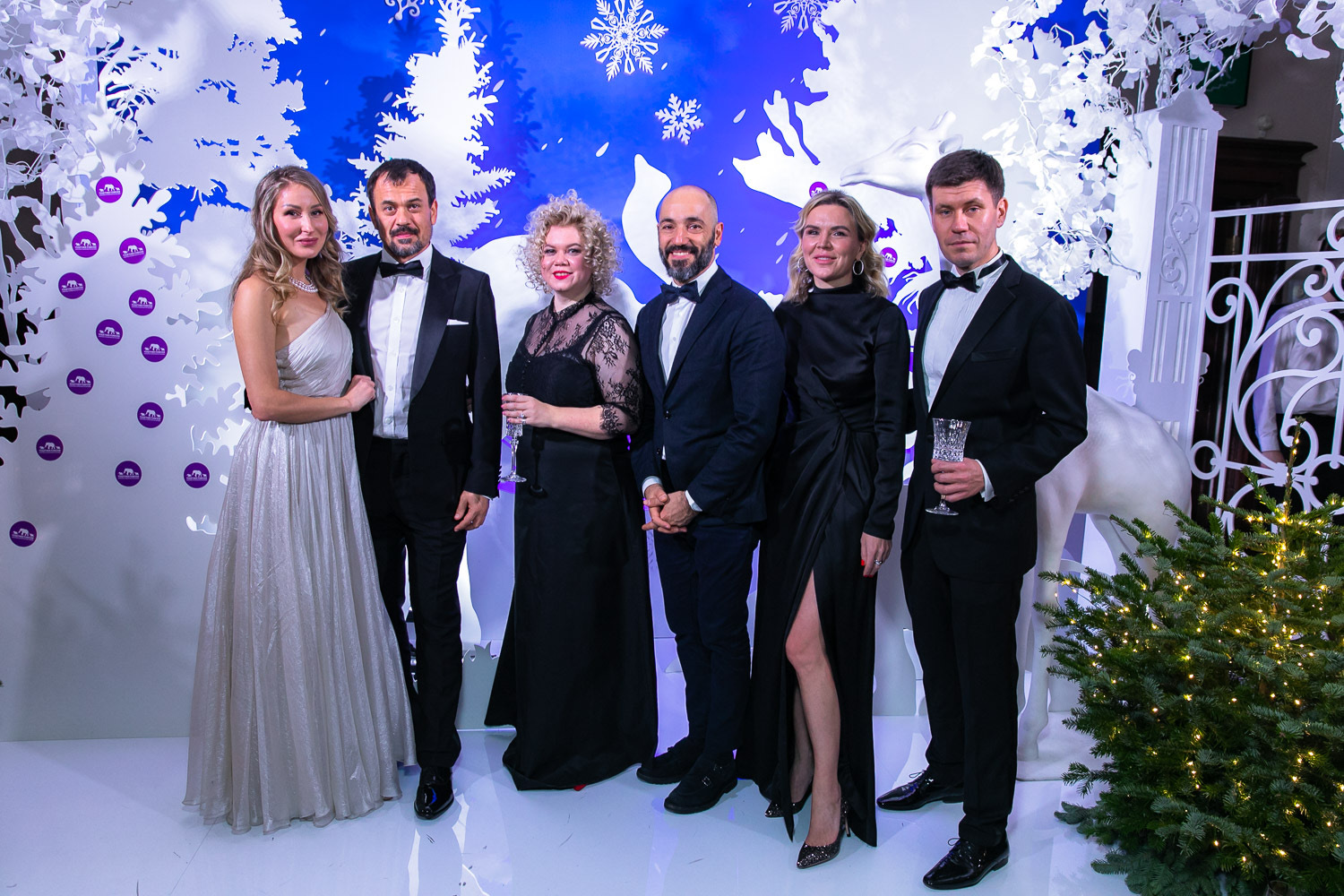
Our personal example also extends to our relationship as a couple. When the kids visit, they observe how Sergey and I interact. We don’t tolerate aggression or boundary violations, and there are no toxic people in our circle. We enjoy spending time together, being active, and so on. We show the kids the values that have grown into the foundation of our family over these four years, helping us live a happy, long life together.
Sergey: This extends to business as well. I don’t tell the kids how they should live or what they should do. They come to me themselves, asking, “Dad, what do you do in business? How do you manage to be successful?” The same applies to sports. When my oldest son, Artem, was growing up, I realized that the only way I could show him the importance of sports and a healthy lifestyle was through my personal example. Today, Artem is deeply involved in sports, but when he was younger, he wasn’t very athletic and was even bullied in school. To get Artem into swimming, I joined him. Every Sunday, I woke up very early, and by 7 AM, we were already at the sports club. While Artem was training with his coach, I swam in the neighboring lane. We would even have father-son competitions, and sometimes I’d let him win. I could have spent those mornings sleeping in, but instead, I chose to invest that time into shaping my son’s relationship with sports, his future, his health, and our bond.
At the same time, I introduced Artem to a great martial arts coach, who gently guided him into the sport. Within a year, Artem had become a confident young man and had overcome the bullying. Although Artem wasn’t a big fan of soccer, when he was seven, we flew to England, where we attended a Chelsea vs. Manchester United game. He fell in love with the atmosphere. During his second visit, Didier Drogba, one of Chelsea’s greatest players, gave Artem his signed jersey. Artem still loves playing soccer to this day.
This approach works with all the kids. Without any pressure, we show them the importance of sports and healthy eating, but we do it in a way that encourages them to make the decision for themselves. I’ll say to Ksyusha, “Tomorrow at 7 AM, I’m going swimming.” It’s tough for her to get up that early, but when she sees me wake up to go swimming after being up with the baby all night, she joins me, and we swim two kilometers in open water.
Nastya: When Sergey runs marathons, the girls and I come to support him. He doesn’t just finish with his own medal; he brings one for each of the girls too. They keep all of them. Recently, during our tour of American universities, Sergey signed Tanya up for a five-kilometer run. When she finished, she received her first medal, which became a symbol of her personal strength — “I did it. I succeeded.” At one of the last marathons, the kids saw someone running the entire race with a stroller and seriously suggested, “Let’s do it with a stroller too!”
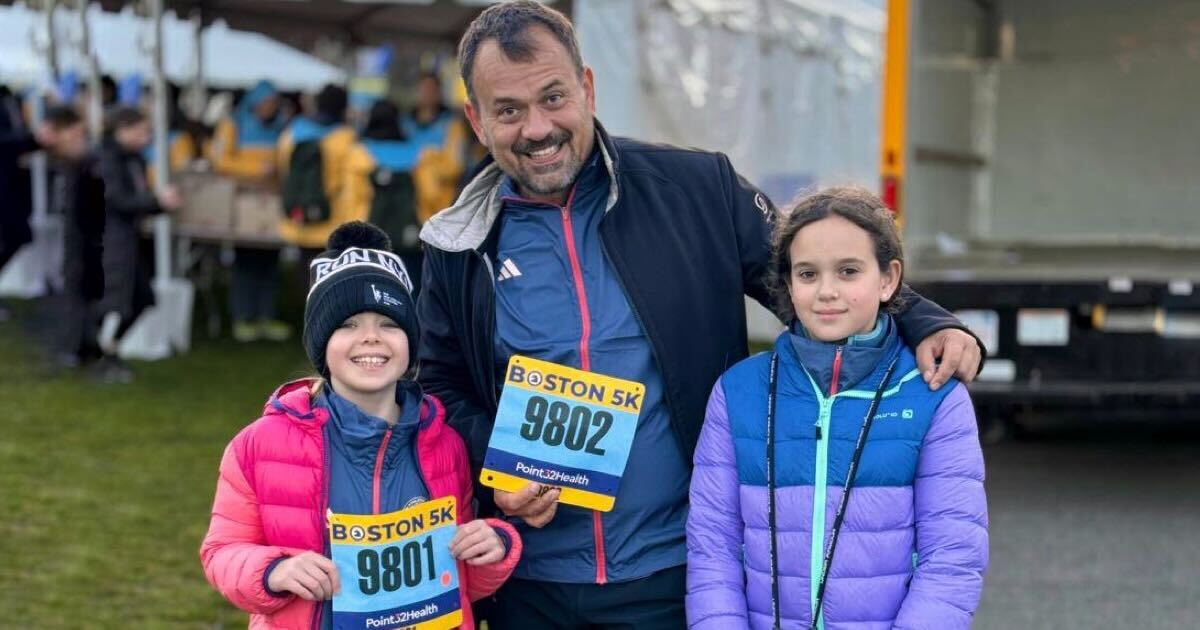
Our third rule is to give the kids as many opportunities as possible, expanding their horizons and perspectives. We invest heavily in their development during school holidays, organizing trips that allow them to see the world. One of our recent trips was to Tanzania and Kenya, where we visited Maasai villages as part of a charity mission. The kids watched wild animals in their natural habitat, saw local children playing soccer with elephant dung, learned how people live without access to drinking water, picked coffee on plantations, and visited village schools. They listened to stories about how fifty percent of Maasai children die at a young age due to various factors—from crocodiles by the river to a lack of vaccinations or carbon monoxide poisoning. As part of the mission, we sponsored the production and installation of safe stoves with outdoor chimneys, provided solar panels for access to free energy, and gave the Maasai children large bags of soccer balls and English coloring books. Our kids actively participated in all of this.
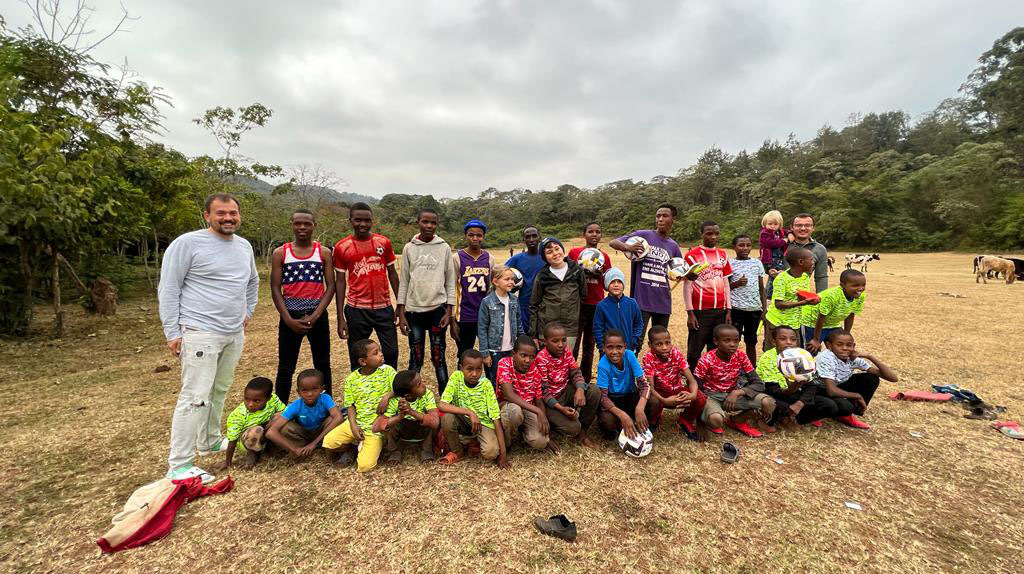
Sergey: All our trips with the kids are purposeful. It’s not just about spending time together. We show them different worlds and, through these contrasts, teach them that they have the power to choose how to build their lives. Valeria Sofia was born in a clinic in Miami. For some time before and after her birth, we rented a house in a neighborhood where successful, well-educated people—businessmen, entrepreneurs, and investors—live. After Valeria Sofia was born, all of our children came to meet their sister and spent two weeks of vacation in Miami. They loved the neighborhood, and I explained that to live in such a place, those successful people had worked hard, studied hard, grown, invested in themselves, and, like all truly successful people, led active lifestyles. Dreaming is one thing, but making your dreams a reality requires a lot of effort.
Nastya: Our fourth principle is non-violent parenting. We don’t force our kids to make up for the things we missed out on in our childhood. If we didn’t get to attend ballet school, we’re not going to make our kids go on pointe just because we couldn’t. We don’t force them to do anything. If I love bodybuilding, I’ll just go to the gym by myself. I’ll invite the kids, but if they don’t want to go, I won’t insist. The same goes for food. We never force children to eat something they don’t like. Our main responsibility as parents is to stock the fridge with a variety of food and give them the freedom to choose.
We don’t moralize in our communication with the kids. Sergey and I try to create a relaxed, natural atmosphere at home, where everyone feels comfortable. If the kids argue at the table, we don’t consider the evening ruined—we’re okay with it. We don’t force them to wear clothes they don’t like to a restaurant, even if we think it’s more appropriate for the occasion. What matters to us is that the kids feel as comfortable as we do.
The Most Important Thing in Life is Freedom
Sergey: As parents, we have two main responsibilities. First, to provide our children with a good education because education is the foundation—it gives them an interesting social circle and valuable skills. Second, to ensure they have housing. Both of these give a child the most important thing in life—freedom.
There’s still debate about whether or not parents should provide housing for their children after university. Personally, I believe they should. First, having their own apartment at the start of independent life saves the child 20 years, as accumulating enough for housing is the most difficult and time-consuming process. Second, having their own space allows the child to breathe more freely, and by age 25, they can achieve much more professionally. Third, the earlier a child’s basic need for security (in the form of housing) is met, the sooner they can start truly enjoying life.
Our children’s drive to achieve and succeed is incredibly high. At 25, they won’t have luxury cars or extravagant vacations—they’ll have to earn those things themselves. Ksenia, who transferred to an American university this year, recently said, "When I have kids, they’ll go to a good British school and then to an American university." She knows that if she wants her children to attend prestigious schools, she has to work hard for it. Our children understand that if they want to follow in our footsteps, they’ll need to work just as hard. For example, Anya and Artem are currently flying to America for their first trip, which they paid for themselves.
"Dad, what’s our budget?"
Sergey: Our kids know that after they finish university, they’ll receive a lump sum that will help them get through the summer. After that, they’re off parental support. A few years ago, this happened with Artem. His lifestyle changed completely—triathlon training was replaced with work. The process of financial separation took some time. Artem complained—it was tough for him to adjust—but he managed. Sasha and Ksenia, knowing they’ll face the same fate soon, have already started saving. While Ksenia is in university, she lives on a monthly budget. Sasha, for now, has pocket money—£10 a week.
We don’t control how the kids spend their money, but we do teach them how to manage it wisely. When we go shopping for clothes, the kids only ask one question: “Dad, what’s our budget?” We usually give everyone the same amount and agree on when and where to meet. On the way to the shops, Sasha already knows he needs to buy a T-shirt and shorts. Masha says, “I want a dress,” and Tanya says, “I have everything I need; I just need a jacket.” Ksenia often comes back after an hour and hands back the money, saying, “I didn’t find anything.” We teach our kids to make conscious financial decisions.
"A man is a provider who makes serious decisions."
Sergey: Is there a difference in raising boys and girls? Absolutely. A future man must be able to take responsibility—for his family, his decisions, his life, and his career—and withstand the mental load that comes with all of that. That’s why, in raising my sons, I focus on ensuring they grow up to be as free and self-confident as possible. It’s also why I sent them out into the world early. Artem went to boarding school at 13, and Sasha at 9. I worried about them—and still do—but I see the positive results of these decisions, which outweigh my fatherly anxieties. Separation is always a two-way process. For my sons to become men, to develop their strength and build their own lives, I had to let go and “allow” them to live their lives.
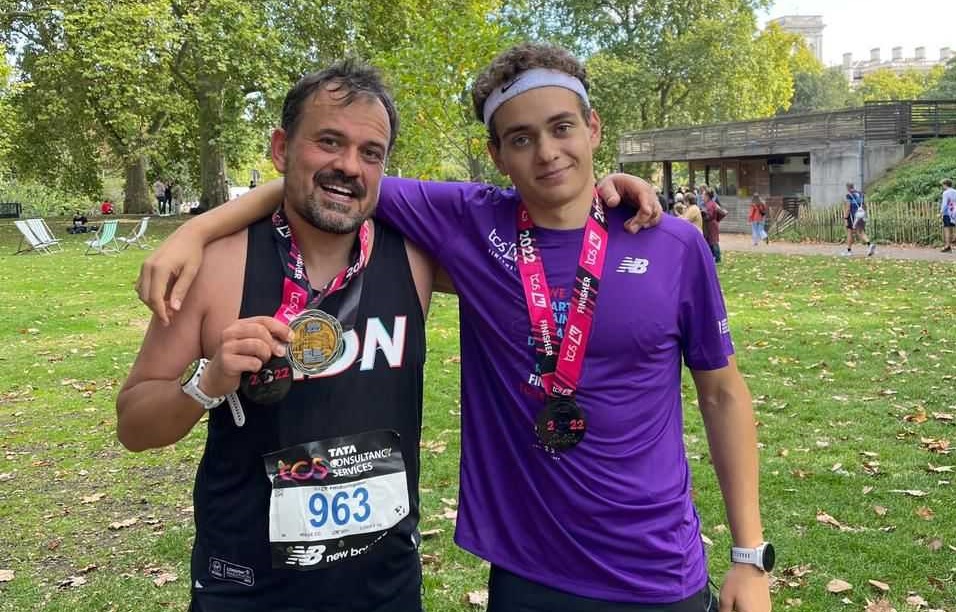
I spend a lot of “guy time” with my sons. We go hunting and fishing. Once, we went on a sports tour to Kamchatka, where we camped, watched bears, and fished for salmon. Masculine energy is that of a provider who makes serious decisions. With my daughters, the expectations are different. My focus with them is on education, safety, and fatherly love. Masha and Tanya live with their mom in Switzerland, so I can’t be fully involved in their upbringing, but I can give them my love. When they’re with me, I try to surround them with warmth and affection—whether it’s picking them up, hugging, or kissing them. Right now, that fatherly closeness is my top priority for them.
"My husband and I learn a lot from each other."
Nastya: How would we describe our parenting? I think today we can call it easy and interesting. When Sergey and I met, each of us had our own established parenting style, and when we came together, we complemented each other perfectly. I’m more tough and direct. I always choose the straight path—I need to break through obstacles. Sergey is different—he’s a strategist, gentle, tactful, respectful, but also very strong, like aluminum. We still learn a lot from each other and often turn to one another for advice. I’ve learned kindness and gentle separation from Sergey. Thanks to him, I’ve been able to improve—and even rebuild—my relationship with my eldest daughter.
Sergey: My mind has always worked in numbers, deals, and math. I think in diagrams and symbols. Conversations, for me, are circles, arrows, and squares. After my first marriage ended and I had to stabilize myself and rebuild my relationships with my kids in a new reality, I had to confront and understand things you can’t draw—emotions, energies, relationships. I went to personal therapy, and over several years, I learned how to interact with myself, the world, and my children in a new way. That journey of self-discovery captivated me and became a major turning point in my parenting.
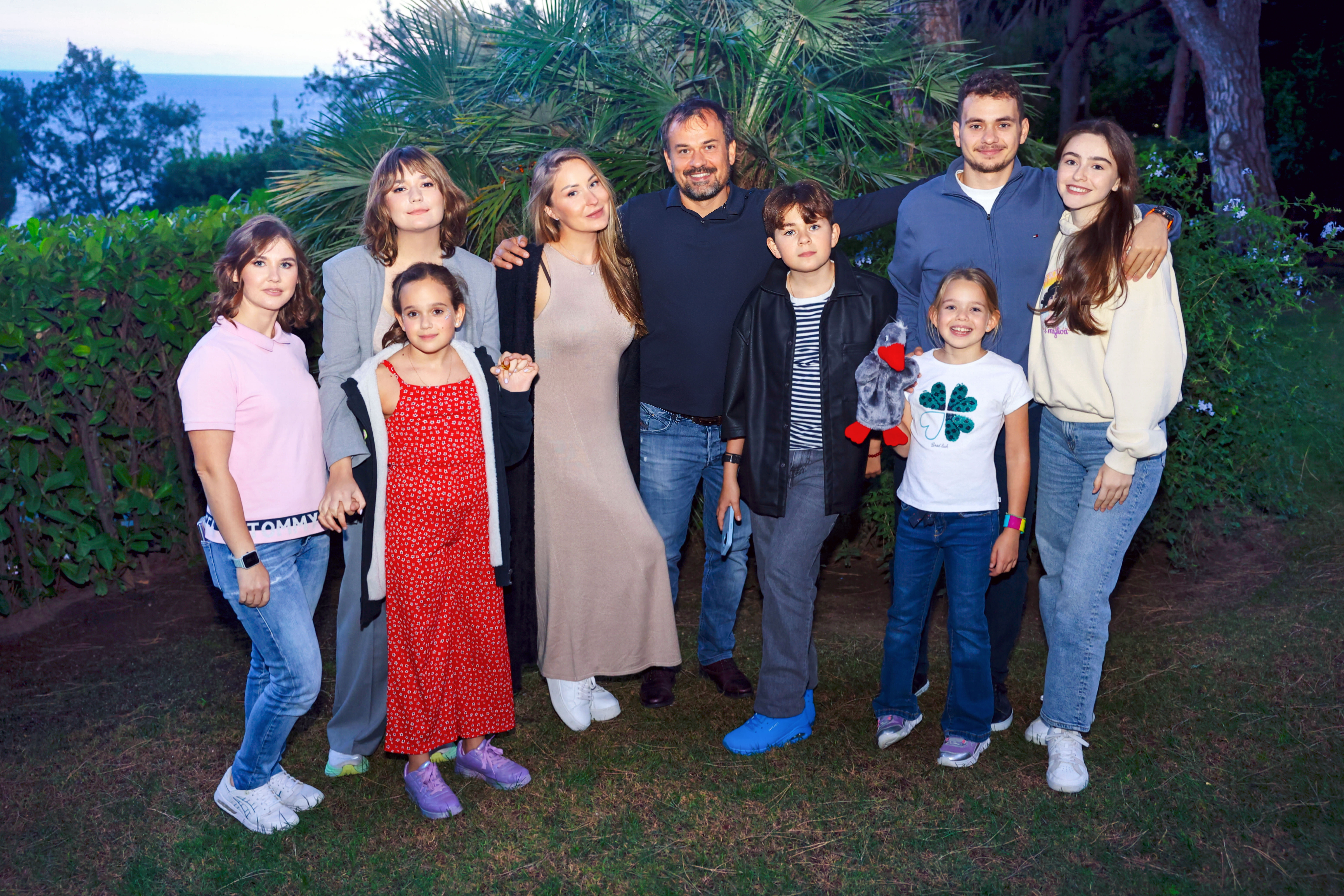
***
To conclude this article, I want to express my gratitude to Sergey and Anastasia for their honest answers to sometimes difficult questions. I thank them for their courage in being open. It’s in this ability to share the truth—both the positives and negatives—that others find the support and strength to solve their own life problems. When you read about someone who has walked the same difficult path, you're on now, who felt the same emotions you're feeling, and ultimately made it through, it builds your own confidence and sense of support—you realize, “I’m not alone; I can make it too.”
This article offers little reflection but plenty of truth and practical advice that you can apply to yourself and your family right now. It’s packed with interesting ideas worth debating and tons of great tips to take note of. So read, enjoy, and go for it!
Prepared by Sofia Frolovskaya,
who wishes easy, interesting, and joyful parenting to everyone,
including herself.


